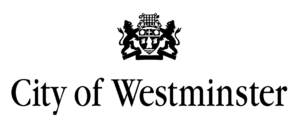The Westminster city council scandal: how does the Bribery Act 2010 apply to gifts and hospitality in practice?
 Robert Davis, the deputy leader of Westminster city council and, until last year, the chair of its planning committee, resigned on Wednesday this week after an internal investigation found he had breached the council’s code of conduct. The internal investigation resulted in a report, published yesterday on the council’s website, which explains that Mr Davis was entertained by and received gifts from property industry figures on at least 150 occasions from 2015 onwards. These gifts and hospitality included dinners at London’s finest restaurants and trips to the south of France, Switzerland, Spain and the United States. They were provided by property firms involved in half of the planning applications his committee ruled on in 2016.
Robert Davis, the deputy leader of Westminster city council and, until last year, the chair of its planning committee, resigned on Wednesday this week after an internal investigation found he had breached the council’s code of conduct. The internal investigation resulted in a report, published yesterday on the council’s website, which explains that Mr Davis was entertained by and received gifts from property industry figures on at least 150 occasions from 2015 onwards. These gifts and hospitality included dinners at London’s finest restaurants and trips to the south of France, Switzerland, Spain and the United States. They were provided by property firms involved in half of the planning applications his committee ruled on in 2016.
Whilst the main focus of the report is on whether there was a breach of the council’s code of conduct, the remit of the report is stated to extend to whether Mr Davis’s acceptance of the gifts and hospitality has been “unlawful or given rise to illegality”. The report concludes that the “acceptance of a large number of gifts and hospitality is not in itself unlawful.”
On the face of it, this is an odd conclusion. Despite running to 21 pages (with a further 87 pages of appendices), the report does not refer at any point to the Bribery Act 2010 – a surprising omission if one is asked to investigate the legality of gifts and hospitality which might be considered to prompt suspicions of corruption.
This raises an important question. How is the Act’s application to gifts and hospitality being implemented in practice, some seven years after the legislation came into force? In 2011 there was uproar in the business community, with widespread fears of corporate entertainment being outlawed. In fact, those fears never came to anything, although there has been a recalibration of what level of hospitality is acceptable in different circumstances.
The Act, it might be argued, does not apply where, first, gifts and hospitality are declared openly on the appropriate register, so that nothing is hidden; and where, secondly, there is no evidence that the gifts or hospitality influenced decisions taken by the recipient or his or her organisation.
But this is to misunderstand the breadth of the offences created by the Act. Section 2 of the Act defines the offence of bribery as it applies to the recipient (or potential recipient) of a bribe. It delineates four scenarios (the Act uses the word “cases”) in which the recipient commits a crime. Case 4 (found in section 2(3) of the Act) provides as follows:
“(3) Case 4 is where—
(a) R requests, agrees to receive or accepts a financial or other advantage, and
(b) the request, agreement or acceptance itself constitutes the improper performance by R of a relevant function or activity.”
In this scenario, the prosecution only has to prove one act, which in the case of a council official, would be the “acceptance” of the “financial or other advantage”. The prosecution does not have to prove that the recipient knew or believed that the performance of his functions was improper. The performance of his functions is deemed to be improper by virtue of the position held. That is, it was improper in and of itself to accept the gifts and hospitality, regardless of whether the acceptance had any impact on the recipient’s behaviour.
Case 4 is a complete answer to the two arguments outlined above. In relation to the first argument, it is irrelevant to the commission of the offence that the gifts and hospitality are openly declared. The prosecution does not have to prove secrecy or subterfuge. In relation to the second argument, it is irrelevant to the commission of the offence that the recipient performed his functions properly. The prosecution does not have to prove improper performance; the offence is based entirely on the acceptance of the advantage, not the consequences of accepting the advantage.
The rationale of case 4 is that it criminalises the conduct of persons from whom good faith and impartiality are expected in the performance of their functions. The very occupation of a position of trust – and a councillor and chair of a council’s planning committee is undoubtedly that — renders it a crime to accept gifts and hospitality, irrespective of whether favours are sought or provided. This is particularly so when the gifts and hospitality emanate from property firms with a vested interest in the planning applications being considered by the committee chaired by the recipient of the advantage.
None of this is to suggest that Mr Davis should be prosecuted. The evidence may not be sufficient for reasons not in the public domain and there may be good public interest factors which mitigate against prosecution. But it is simply incorrect for the report to conclude that accepting gifts and hospitality is “not in itself unlawful” when section 2(3) of the Act was introduced for the specific purpose of criminalising the type of conduct laid bare in Westminster city council’s investigation.
By Andrew Smith, Corker Binning
